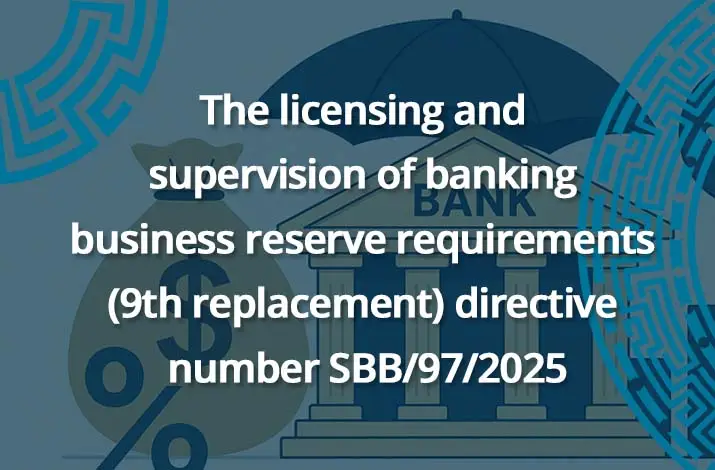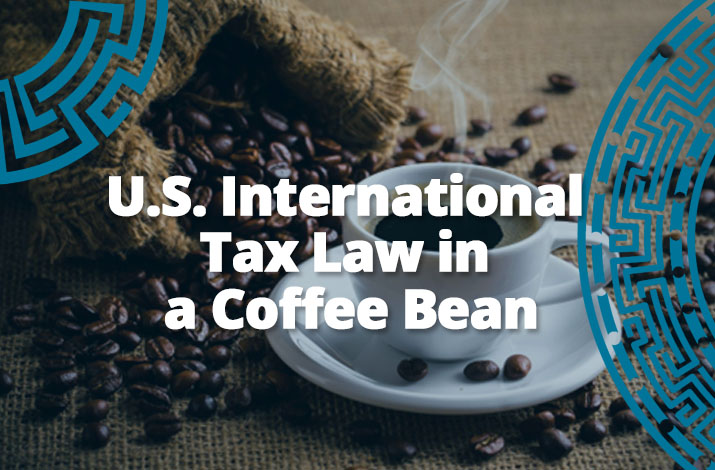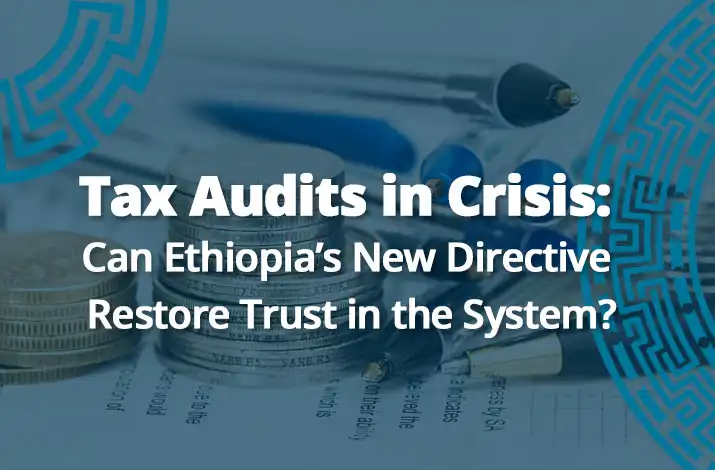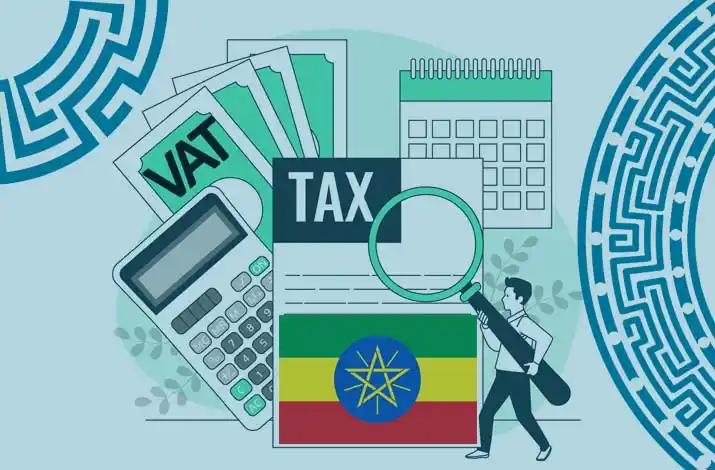Ethiopia’s Amended Income Tax Proclamation: Implications for Revenue, Professionals, & Investors
1. Introduction
The goals of the amendment are typically outlined in the preamble of the proclamation. Therefore, the objectives mentioned in the preamble include: improving revenue collection through adjustments to the rates applied to certain incomes; expanding the tax base; creating an efficient system of tax incentives; and curbing tax avoidance strategies, which encompass restrictions on cash payments.
2. Significant Modifications to the Amendment
A) Change in the Rate of Income
The proclamation marks a notable rise in the taxation rates for certain income categories that were previously taxed at lower levels. The premium rate for insurance and royalties for various services has increased from 5% to 15%, while the rates for dividends, entertainment, repatriated profits, and interest have risen from 10% to 15%, respectively. These new rates apply solely to non-residents. The tax rates for residents differ from those for non-residents, and even non-residents with a permanent establishment in Ethiopia are subject to different rates.
For royalty income, the tax rate has been raised from 5% to 10% for both residents and non-residents with a permanent establishment in Ethiopia. However, the tax rate for royalty income derived from artistic and cultural works for residents remains unchanged from the current proclamation.
While it appears that this increase in taxation could enhance government revenue by generating more income due to higher tax rates, the outcome may be contrary. An arbitrary rise in taxation can lead to increased costs for goods and services. Consequently, this may result in a decline in transactions, which would subsequently reduce the income subject to taxation. Therefore, the potential effects should be carefully considered before implementing a threefold increase in tax rates to boost tax revenue.
The amendment proclamation introduces varying tax rates on similar income depending on the nationality of the taxpayers. This approach contradicts the fundamental principle of equal treatment for all taxpayers. Furthermore, likely, foreign investors from nations that have entered into Bilateral Investment Treaties (BITs) with Ethiopia may contest the proclamation, citing the equal treatment clause within those treaties. No treaty permits the unequal treatment of foreign investors compared to domestic investors. Consequently, implementing provisions that differentiate investors based on nationality could face significant challenges, rendering the attempt to increase tax revenue through higher taxable income rates ineffective.
Ethiopia is aggressively working on WTO accession. Negotiation is expected to be concluded in March 2026. Unequal treatment of taxpayers based on their nationality may have implication on ongoing negotiation to accede WTO when legal and regulatory review is undertaken.
In a similar vein, double taxation avoidance treaties (DTTs) restrict the Ethiopian government’s taxation authority. DTTs typically impose limits on tax rates for certain types of income, such as interest, dividends, and royalties, contingent upon meeting the beneficial ownership criteria. Naturally, DTTs tend to favor Ethiopia by allowing taxation of income in the countries of residence, while other nations often prefer OECD model treaties that benefit developed or capital-exporting countries.
In this context, we can refer to the DTT established between Ethiopia and the People’s Republic of China, which closely resembles treaties with other nations. This treaty stipulates a maximum tax rate of 5% for dividends and royalties, and 7% for interest [1]. Given these constraints, the prospect of generating additional revenue by raising tax rates on the aforementioned incomes appears highly improbable.
B) Broadening Tax Base
The proclamation introduces new regulations aimed at incorporating certain incomes that were previously excluded from the income tax framework. It consists of two articles: one addressing income derived from digital platforms and the other mandating that any taxpayer must pay a minimum tax in a given tax year if their total tax liability is below 2%.
Income generated from a digital platform is classified in two distinct ways. The first classification treats the income as business income taxable under Schedule C’, provided that the income from digital content creation meets specific criteria. These criteria include: the income must arise from a business activity conducted regularly to make a profit; the business must be conducted in an organized manner; and the entity must maintain accounting records or incur expenses while operating. All these criteria must be satisfied cumulatively. If these criteria are not met, the income will be classified as other income under Schedule D and taxed accordingly.
Establishing a minimum tax on gross income represents another approach to enhance tax collection in a tax year when the tax owed, as declared by the taxpayer, is less than 2% of gross income. The applicable tax rate in this case is set at 2.5%. However, the new proclamation restricts the types of income that are subject to minimum taxation. The tax rate is determined based on: income from banking operations, income from life insurance premiums and other insurance types, income derived solely from insurance activities, and gross income from commissions for entities providing goods at a fixed price. Other business entities are obligated to pay income tax at a rate of 2.5% on their total annual income.
The scheme is relevant for investors who benefit from investment incentives like a tax holiday. It also applies to business entities that may have experienced a loss in a specific tax year. Business entities undergoing dissolution due to bankruptcy and debt restructuring are not required to pay the alternative minimum tax. However, any tax paid in excess can be deducted from taxes owed over the next 15 years.
C) Reduced Permanent Establishment (PE) Threshold
The recent proclamation also reduces the duration for providing technical services and executing projects from 183 days to 91 days within a year to determine if an entity qualifies as a PE. Income generated by an entity involved in construction or services during the period specified in the proclamation is taxable, and these entities must also adhere to maintaining accounting records and reporting to the relevant tax authorities. This threshold aligns with the PE criteria set forth by the OECD/G20 BEPS initiative by capturing revenues from short-term projects.
D) Corporate Tax Exemption for LLPs and Collective Investment
- Corporate tax exemption: LLPs are no longer subject to corporate income tax.
- Withholding obligation: LLPs must withhold income tax when distributing profits to individual partners.
- Professional fairness: This change addresses concerns from professionals (e.g. lawyers, accountants) who felt double taxation—on both business profits and dividends—was unjust when income is derived from personal labour.
Collective Investment Schemes (CISs)
- Corporate tax exemption: CISs are also exempt from corporate income tax.
- Dividend tax only: The only tax obligation is withholding dividend tax when profits are distributed to shareholders.
- Capital market incentive: The exemption is designed to stimulate investment in Ethiopia’s emerging capital markets and attract more institutional and retail investors.
E) Change to Category of Taxpayers and Obligation to Keep Book of Records
The amendment made a change to category of tax payers from three to two. There were three categories of taxpayers for decades. Now it is reduced to two- category A and B. The threshold for category “A” taxpayers is annual turnover of ETB 2,000,000 for individual taxpayers. Entities are category A taxpayers regardless of their annual turnover. Taxpayers whose annual turnover less than ETB 2,000,000 falls under category B.
Category B taxpayers were used to keep simplified book of records. Now they are exonerated from such obligation except taxpayers engaged in professions is listed under article 50 as amended. Tax payers except those engaged in professions pay tax at rates ranging from 2% to 9% on their gross income. As they are not required to keep book of records, their income would be determined on presumptive basis.
Taxpayers engaged in professions listed under article 50 as amended, are required to keep book of records according to article 86 of the proclamation regardless of their turnover. No doubt, it adds compliance cost on taxpayers engaged in these professions. To take advantage of corporate tax exemption and shared compliance cost related to obligation to keep books of records, LLPs are recommendable for professionals made exceptions to flat rated tax.
F) Cash Transaction Limit
The recent proclamation establishes a rule that restricts cash payments for transactions to 10,000 Birr. Payments subject to this limit can be made for one individual in a single day or for a single supply of goods or services. Taxpayers making cash payments exceeding the legally prescribed maximum will forfeit the right to deduct the excess amount, and taxpayers receiving cash payments that surpass the limit will face a penalty equal to double the excess amount over the prescribed limit. This new regulation could impact numerous businesses operating in rural areas with limited banking services, particularly in the agriculture, mining, and construction sector.
3. Conclusion
The recent tax amendment proclamation aims to expand the tax base by incorporating sectors that are currently excluded from the income tax framework. The limitation on cash transactions is designed to promote formal dealings, which will ultimately enhance revenue by deterring underground activities.
Discriminatory tax rates on certain incomes based on nationality could face challenges from foreign investors who may invoke equal treatment clauses in BITs established between their home countries and Ethiopia. To foster trust in the legal framework and prevent unnecessary conflicts, it is advisable to avoid such discriminatory practices.
Although raising tax rates on specific incomes may seem to increase short-term revenue, excessively high rates could deter foreign investment, elevate transaction costs, and promote informal transactions, which would gradually reduce the tax base. The suggested provision for an alternative minimum tax that applies to taxpayers even when they incur losses may compel some to exit the market if they lack the cash to meet this obligation. Instead of imposing burdensome taxes, it is crucial to explore other areas of economic activity that fall outside the income tax regime.
[1] See Articles 10(2), 11(2), and 12(2) of the Avoidance of Double Taxation Treaty between Ethiopia and China.










